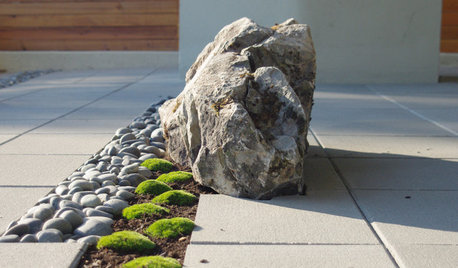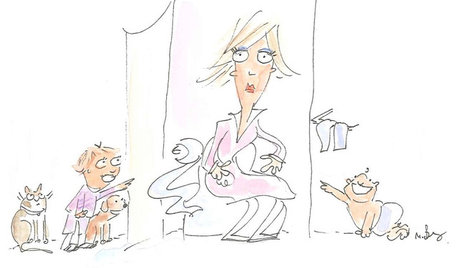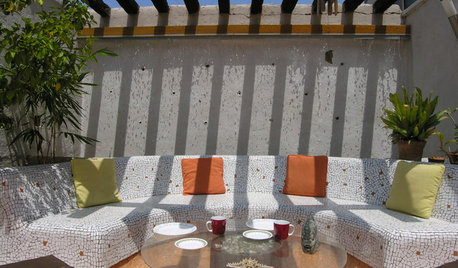Ants are seriously destroying things!!
socalgirl-10
15 years ago
Related Stories

PETS5 Finishes Pets and Kids Can’t Destroy — and 5 to Avoid
Save your sanity and your decorating budget by choosing materials and surfaces that can stand up to abuse
Full Story
GARDENING FOR BUTTERFLIESGardening for the Bees, and Why It’s a Good Thing
When you discover how hard bees work for our food supply, you may never garden without them in mind again
Full Story
FUN HOUZZ10 Things People Really Don’t Want in Their Homes
No love lost over fluorescent lights? No shocker there. But some of these other hated items may surprise you
Full Story
LANDSCAPE DESIGNDare to Mix Things Up in the Landscape
Courageously contrast plantings, materials and structures in your garden to create unexpected beauty and intrigue
Full Story
CONTRACTOR TIPS10 Things to Discuss With Your Contractor Before Work Starts
Have a meeting a week before hammers and shovels fly to make sure everyone’s on the same page
Full Story
HOUSEKEEPING20 Things You Might Be Forgetting to Spring-Clean
Clean these often-neglected areas and your house will look and feel better
Full Story
LIFE21 Things Only People Living With Kids Will Understand
Strange smells, crowded beds, ruined furniture — here’s what cohabiting with little monsters really feels like
Full Story
REMODELING GUIDESContractor's Tips: 10 Things Your Contractor Might Not Tell You
Climbing through your closets and fielding design issues galore, your contractor might stay mum. Here's what you're missing
Full Story
FURNITUREHow to Buy a Quality Sofa That Will Last
Learn about foam versus feathers, seat depth, springs, fabric and more for a couch that will work for years to come
Full Story
LANDSCAPE DESIGN13 Extra-Cool Things to Do With a Backyard
Sure, you could just plop down on a blanket. Or you could create a dragon’s lair, a mosaic gallery, a party in a jungle ...
Full StoryMore Discussions








reba_nc
socalgirl-10Original Author
Related Professionals
Ashburn Landscape Architects & Landscape Designers · Clemson Landscape Architects & Landscape Designers · Fort Lee Landscape Architects & Landscape Designers · Hyattsville Landscape Architects & Landscape Designers · Middle Island Landscape Architects & Landscape Designers · South Elgin Landscape Architects & Landscape Designers · Concord Landscape Contractors · Caldwell Landscape Contractors · Mastic Beach Landscape Contractors · Ocoee Landscape Contractors · Pleasant Grove Landscape Contractors · Rockwall Landscape Contractors · Tyngsboro Landscape Contractors · Goldenrod Landscape Contractors · Ashburn Driveway Installation & Maintenancedicot
engineeredgarden
digdirt2
nc_crn
socalgirl-10Original Author
digdirt2
reba_nc
socalgirl-10Original Author
reba_nc
therealtrooper
dicot
digdirt2
reba_nc
farkee
ella_bell
pieheart
hopeforthefuture3